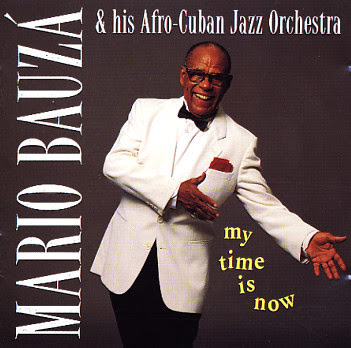 |
| Cuban artists against Decree 349 | Photo © Facebook / Luis Manuel Otero |
Therefore it is the height of irony that the Associated Press's Gisela Salomon writing an article titled "Miami sees a return to Cold War cultural hard line on Cuba" cited the tweet of the Ambassador to the Castro dictatorship, “Cultural terrorism? Miami politicians ask for Cuban artists to be excluded from a local concert” and failed to provide any context. Not to mention that the "cultural hard line" in Cuba has never lessened and is a zero tolerance policy. If excluding a Cuban artist from a local concert is "cultural terrorism" than what does one call removing all the works of an artist from their country of origin, banning their works from the national airwaves, and barring them from returning to their own country? This was done to Celia Cruz and many other artists, and has been described as "cultural genocide."
Salomon's article provides differing points of view from the Cuban Exile community on whether or not pro-communist, pro-regime artists should be able to play in Miami. This is what one would expect in a free society: a diversity of opinions. Over twitter I was volunteered into the conversation.
#Cuba #Miami @giselasalomon calls us #Cuban exiles “intolerant.” She ignores the fact that the only intolerant has been the Castro regime for 61 years, repressing and killing our nation. Another journalist using regime propaganda rhetoric. @AP @johnjsuarez @alexotaola pic.twitter.com/zTqpyND8iO— CubaPoliceAbuse 🇨🇺🚨 (@PoliceAbuseCuba) February 4, 2020
It is true that when quoting the dictatorship's ambassador uncritically that Salomon is "using regime propaganda rhetoric", but the claim that exiles have never been intolerant ignores history. Ironically, so does Salomon in her article.
In 1996 folks trying to attend a concert by Cuban jazz pianist Gonzalo Rubalcaba were verbally and physically assaulted by 200 exile protesters. I condemned it at the time, and still do today.
Three years later in 1999 there were violent protests at the Miami Arena during a performance of the Cuban salsa band Los Van Van that left one person injured, and eleven arrested. I spoke out again at that time condemning what happened, and still do today.
In April 2003 three young black Cuban men were summarily executed by the Castro regime for hijacking a boat and trying to flee Cuba. Cuban musicians and artists were obligated by the Castro dictatorship to sign a public letter supporting these executions, and more generalized repression, and many did, including Omara Portuondo, who years later would be invited by President Obama to perform at the White House.
This blog was started in 2009 responding to violent protests against the Colombian musician, Juanes, including death threats against his person, when he announced that he would be holding a concert in Cuba. I spoke out again at the time condemning the death threats, pleading for tolerance and free expression, and organized a petition denouncing the death threats. At the same time we gave a critical and nuanced assessment of the concert.
Nor was any mention made of Decree 349 or the fact that Cuban artists living in the island that are critical of the regime are beaten up, jailed, and systematically censored. According to Amnesty International, "under the decree, all artists, including collectives, musicians and performers, are prohibited from operating in public or private spaces without prior approval by the Ministry of Culture. Individuals or businesses that hire artists without the authorization can be sanctioned, and artists that work without prior approval can have their materials confiscated or be substantially fined. Under the new decree, the authorities also have the power to immediately suspend a performance and to propose the cancellation of the authorization granted to carry out the artistic activity."
The speculation made in the article that the passion aroused by visiting artists was due to the 2020 elections fails to take into account this partial history, or the fact that the Castro regime extrajudicially executed tens of thousands of Cubans and is still doing it today not only in Cuba, but also in Venezuela.
The fact that Cuban artists, to be able to continue performing in Cuba, have supported the summary executions of young black men is a legitimate cause for anger, and those who signed should not be granted visas to the United States.
However, those who did not, and do not have blood on their hands, regardless their ideological outlook should be able to play their music. We do not have an obligation to watch them play, but we do have an obligation not to censor or threaten those that we disagree with. That is what the Castro regime does. It is because I am a hardliner that completely rejects the Castro dictatorship that the defense of artistic freedom and freedom of expression more broadly are precious to me, along with the virtue of tolerance for those I disagree with.



















